
This is the English translation of a Turkish language article that was originally published by AVİM on 7 May 2024.
A senior European Union (EU) diplomat stated on April 11th that he would like to see "real, substantive negotiations" between Armenia and Azerbaijan that would lead to a peace agreement, border demarcation, and the opening of transport links.
Toivo Klaar, the EU's special representative for the crisis in the South Caucasus and Georgia, explained to RFE/RL that Azerbaijan and Armenia could move faster in the peace process if the conditions are right. He added that the EU supports the Armenia - Türkiye normalization process and hopes that the special representatives of the two countries will meet again in the near future[1]. Klaar stated "If there is political will and determination, it should not take too long to reach a positive outcome. We want to work together with Azerbaijan and Armenia to move from where we are to a positive outcome". In his meetings with Ruben Rubinyan, Deputy Speaker of the Armenian Parliament and Armenia's special envoy for the normalization of relations between Türkiye and Armenia, and Serdar Kılıç, Türkiye's special envoy, Klaar emphasized that he heard that both sides were keen to make progress on this issue. He added that the EU absolutely supports this and therefore hopes that this process will significantly move forward in the near future and yield results for Türkiye, Armenia and the region.
Turkish and Armenian special representatives held four official meetings on the normalization of relations between Türkiye and Armenia. The last meeting took place in Vienna in July 2022. At this meeting, the parties agreed to open the border between Türkiye and Armenia to third-country nationals as soon as possible. However, the border was opened only once during this period, for trucks carrying humanitarian aid sent by the Armenian government to victims of last year's devastating earthquake in Türkiye.
Klaar added that Brussels supports the Türkiye-Armenia normalization process and hopes that the special envoys appointed by Yerevan and Ankara for normalization talks will meet soon.
These words are in line with the wishes of Armenian Prime Minister Nikol Pashinyan. Another important development is that Pashinyan, who has a relatively moderate stance towards Türkiye compared to the previous Armenian administration, demanded the disclosure of the identities of the "1.5 million Armenians" claimed by the Armenian fanatics. This demand by Pashinyan and his supporters has caused discomfort among the opposition[2].
Although the statements of EU representative Toivo Klaar and Armenian Prime Minister Nikol Pashinyan are parallel to each other, they are disturbing Armenia’s political opposition parties, the church and diaspora Armenians. Pashinyan's message on April 24th further fueled the opposition's discontent[3]. His April 24th remarks were described as "full of confusing words reflecting his unstable state of mind" and his use of “Meds Yeghern” (Great Catastrophe) 11 times instead of "genocide" was met with great disappointment in some quarters.
On April 30th, 2024, The Armenian Weekly columnist Harout Sassounian's venomous remarks against Prime Minister Pashinyan and his concern regarding the damage to the "Armenian identity" built on the "genocide" allegations following Pashinyan's "radical change proposals" are clearly visible. Sassounian's concern is not only about Pashinyan's proposals, but also about whether Armenia will "meet Türkiye and Azerbaijan at the same point". This is not a case of reading intentions. Sassounian himself expressed this concern. He has clearly written that he is uncomfortable with the undermining of Armenian identity being based on "regional problems", "enmity" and "genocide"[4].
The keywords "Constitution of Armenia", "Declaration of Independence", "National Anthem of Armenia", "State Coat of Arms of Armenia", "hostility" and "genocide" can and should be analyzed in detail. Because these keywords are important steps to be taken for regional stability and peace efforts. Although not so explicitly stated, Toivo Klaar, the EU Special Representative for the South Caucasus and the crisis in Georgia, has also stated that regional development is a desired and expected development. It is worth mentioning in passing that regional cooperation, peace and stability seem to be disturbing some non-regional actors.
*Image: https://avim.org.tr/tr/Yorum/AB-NIN-POLITIKASI-PASINYAN-IN-TUTUMU-ILE-ORTUSMEYE-BASLADI
[1] “Toivo Klaar hopes Armenia, Turkey special representatives on normalization of bilateral relations will meet soon,” News AM, news.am, 11 April 2024, https://news.am/eng/news/817273.html.
[2] “Pashinyan ally calls to ‘verify’ number of Armenian genocide victims,” Civil Net, civil.net, 16 April 2024, https://www.civilnet.am/en/news/772023/pashinyan-ally-calls-to-verify-number-of-armenian-genocide-victims/.
[3] “Prime Minister Nikol Pashinyan’s message on the occasion of the 109th anniversary of the Armenian Genocide”, The Prime Minister of the Republic of Armenia, https://www.primeminister.am/en/statements-and-messages/item/2024/04/24/Nikol-Pashinyan-April-24/.
[4] “Pashinyan Falsely Blames Armenian’s Problems on Trauma from the 1915 Genocide,” The Armenian Weekly, 30 April 2024, https://armenianweekly.com/2024/04/30/pashinyan-falsely-blames-armenias-problems-on-trauma-from-the-1915-genocide/.
© 2009-2025 Center for Eurasian Studies (AVİM) All Rights Reserved
No comments yet.
-
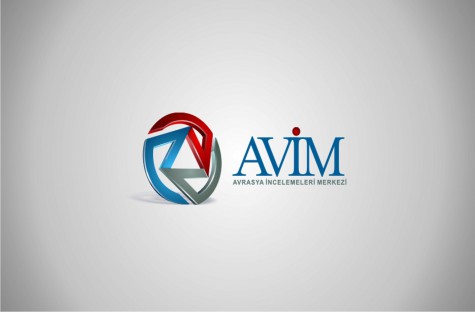 ASALA WANTS TO HAVE A SAY IN ARMENIAN POLITICS
ASALA WANTS TO HAVE A SAY IN ARMENIAN POLITICS
Hazel ÇAĞAN ELBİR 28.01.2016 -
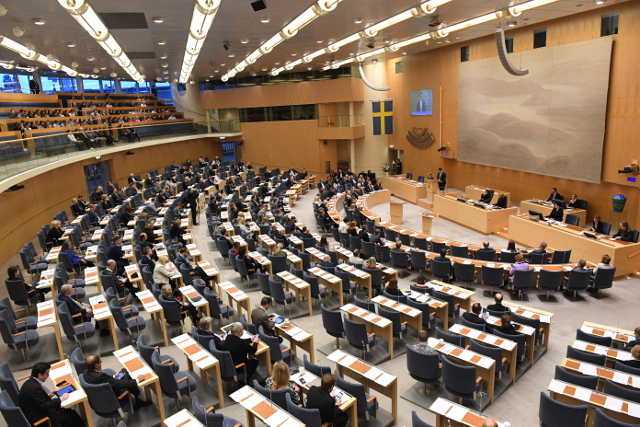 NO PERMISSION TO SO-CALLED GENOCIDE MONUMENT ATTEMPTS IN SWEDEN
NO PERMISSION TO SO-CALLED GENOCIDE MONUMENT ATTEMPTS IN SWEDEN
Hazel ÇAĞAN ELBİR 08.03.2018 -
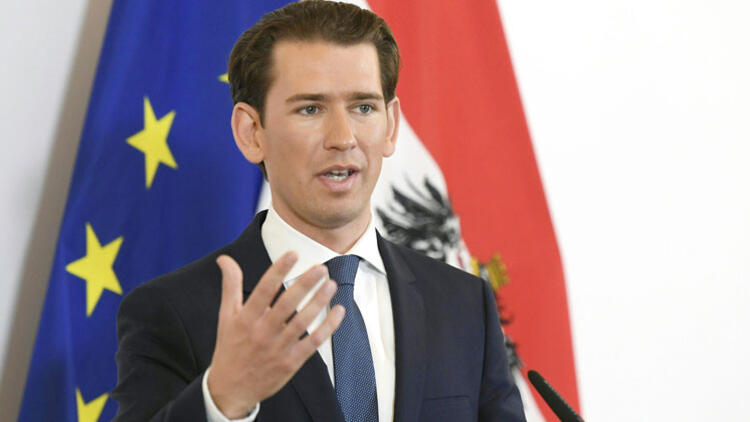 KURZ HAS BEEN APPOINTED AS THE CO-CHAIR TO THE ANTI-RACISM GROUP
KURZ HAS BEEN APPOINTED AS THE CO-CHAIR TO THE ANTI-RACISM GROUP
Hazel ÇAĞAN ELBİR 27.01.2022 -
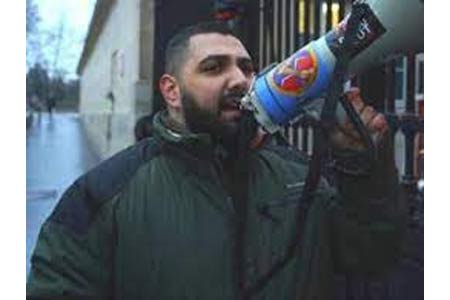 ARMENIA IS DISTURBED BY THE RADICAL ACTIVITIES IN THE DIASPORA
ARMENIA IS DISTURBED BY THE RADICAL ACTIVITIES IN THE DIASPORA
Hazel ÇAĞAN ELBİR 10.02.2023 -
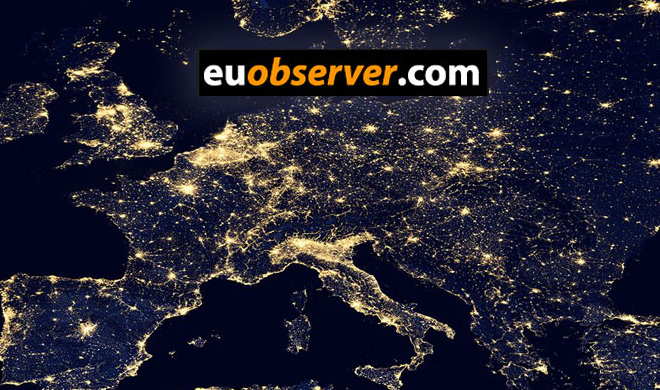 THE PROBLEM OF BIASED INTERNATIONAL NEWS AGENCIES
THE PROBLEM OF BIASED INTERNATIONAL NEWS AGENCIES
Hazel ÇAĞAN ELBİR 17.03.2017
-
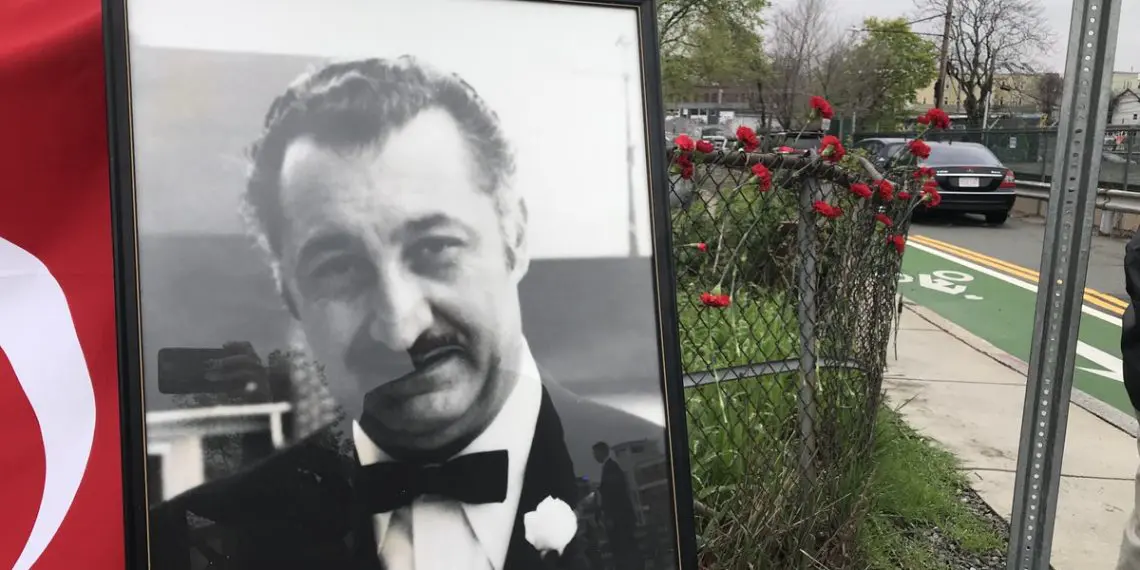 MARTYRED DIPLOMATS: ORHAN GÜNDÜZ, HONORARY CONSUL GENERAL OF BOSTON (MAY 4, 1982)
MARTYRED DIPLOMATS: ORHAN GÜNDÜZ, HONORARY CONSUL GENERAL OF BOSTON (MAY 4, 1982)
Hazel ÇAĞAN ELBİR 12.05.2023 -
A WIRE FENCE ALONG THE MARITSA RIVER – SCHENGEN IS TAKING SHAPE
Alev KILIÇ 19.12.2012 -
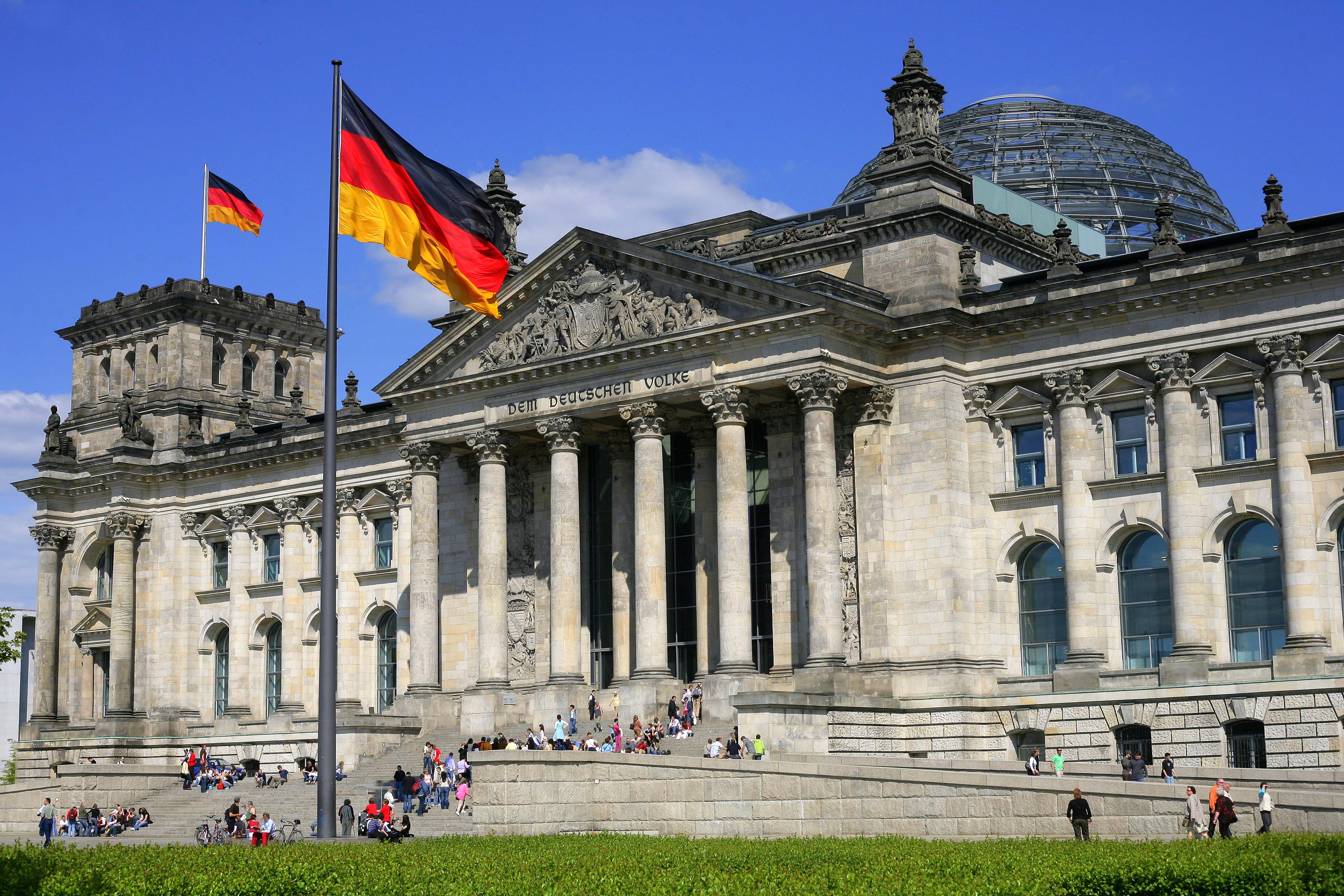 GENOCIDE ACCUSATION AS A FORM OF PUNISHMENT
GENOCIDE ACCUSATION AS A FORM OF PUNISHMENT
Mehmet Oğuzhan TULUN 31.05.2016 -
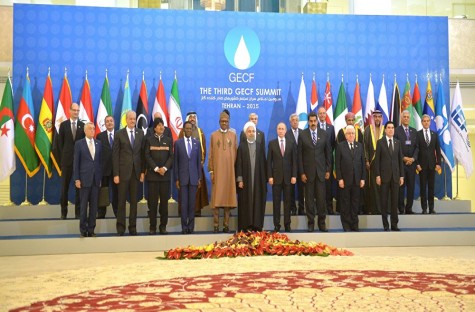 THIRD GAS SUMMIT OF THE GAS EXPORTING COUNTRIES FORUM
THIRD GAS SUMMIT OF THE GAS EXPORTING COUNTRIES FORUM
Ali Murat TAŞKENT 07.12.2015 -
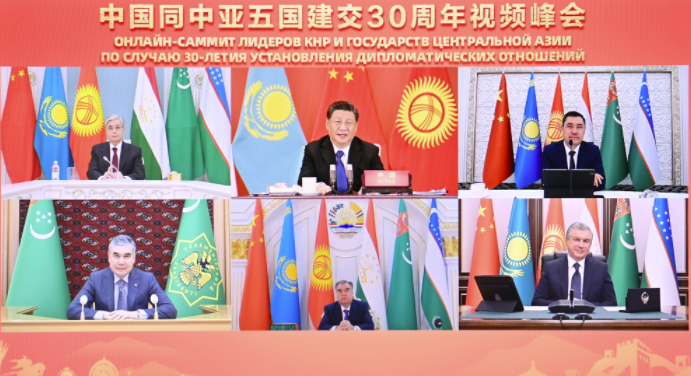 CHINA’S INTERACTION WITH CENTRAL ASIAN COUNTRIES IS INCREASING
CHINA’S INTERACTION WITH CENTRAL ASIAN COUNTRIES IS INCREASING
Şevval Beste GÖKÇELİK 08.03.2022
-
25.01.2016
THE ARMENIAN QUESTION - BASIC KNOWLEDGE AND DOCUMENTATION -
12.06.2024
THE TRUTH WILL OUT -
27.03.2023
RADİKAL ERMENİ UNSURLARCA GERÇEKLEŞTİRİLEN MEZALİMLER VE VANDALİZM -
17.03.2023
PATRIOTISM PERVERTED -
23.02.2023
MEN ARE LIKE THAT -
03.02.2023
BAKÜ-TİFLİS-CEYHAN BORU HATTININ YAŞANAN TARİHİ -
16.12.2022
INTERNATIONAL SCHOLARS ON THE EVENTS OF 1915 -
07.12.2022
FAKE PHOTOS AND THE ARMENIAN PROPAGANDA -
07.12.2022
ERMENİ PROPAGANDASI VE SAHTE RESİMLER -
01.01.2022
A Letter From Japan - Strategically Mum: The Silence of the Armenians -
01.01.2022
Japonya'dan Bir Mektup - Stratejik Suskunluk: Ermenilerin Sessizliği -
03.06.2020
Anastas Mikoyan: Confessions of an Armenian Bolshevik -
08.04.2020
Sovyet Sonrası Ukrayna’da Devlet, Toplum ve Siyaset - Değişen Dinamikler, Dönüşen Kimlikler -
12.06.2018
Ermeni Sorunuyla İlgili İngiliz Belgeleri (1912-1923) - British Documents on Armenian Question (1912-1923) -
02.12.2016
Turkish-Russian Academics: A Historical Study on the Caucasus -
01.07.2016
Gürcistan'daki Müslüman Topluluklar: Azınlık Hakları, Kimlik, Siyaset -
10.03.2016
Armenian Diaspora: Diaspora, State and the Imagination of the Republic of Armenia -
24.01.2016
ERMENİ SORUNU - TEMEL BİLGİ VE BELGELER (2. BASKI)
-
AVİM Conference Hall 24.01.2023
CONFERENCE TITLED “HUNGARY’S PERSPECTIVES ON THE TURKIC WORLD"









